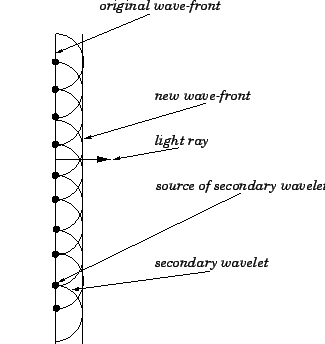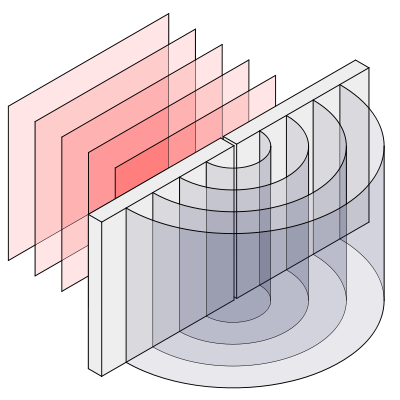When you say that sound looks like |||| or )))) you are talking about wavefronts. Very simply, wavefronts are a locus of all points of a wave which are in the same phase. For sound you can regard same phase as corresponding compressions.Wavefronts can be of many shapes. Spherical, cylindrical or planar are a few examples. The shape of the waefronts depends on the sound source.
When passing a planar wavefront of sound(i.e. ||||) through a slit, it will produce cylindrical wavefronts(i.e. )))) ). This can be said using Huygen's theory of wave propagation. Huygen's theory says that every point on a wavefront is a new point source of waves.
![][1]
This diagram shows how a planar wavefront is propagated. Now if you place a slit in front of this wavefront, only the points on the slit can now propagate the wave forward(Other wavelets bounce of the board). So in effect what you get is a cylindrical wavefront(i.e. ))))) Something like this:
![enter image description here][2]
The same happens with light. The only difference is that the wavefronts you get with light are still planar or cylindrical or spherical ( |||| or ))))) and not like ~~~~~~. The latter is a representation of the light wave and not the wavefront [1]: https://i.sstatic.net/69mZx.png [2]: https://i.sstatic.net/QYwlH.png
